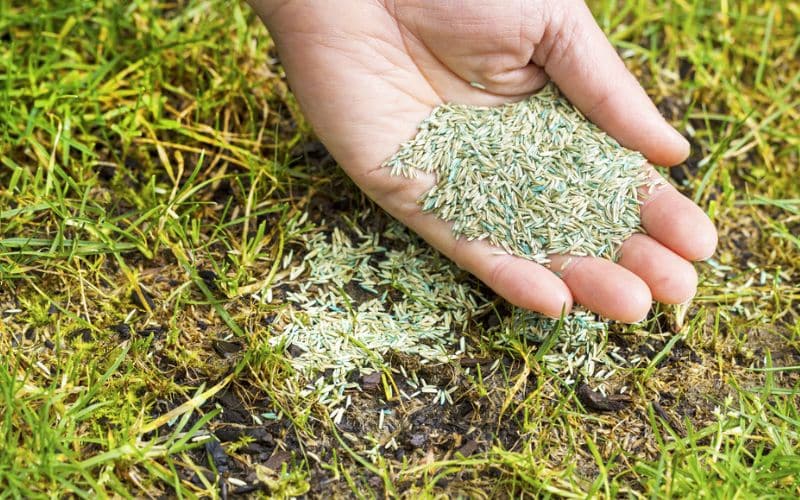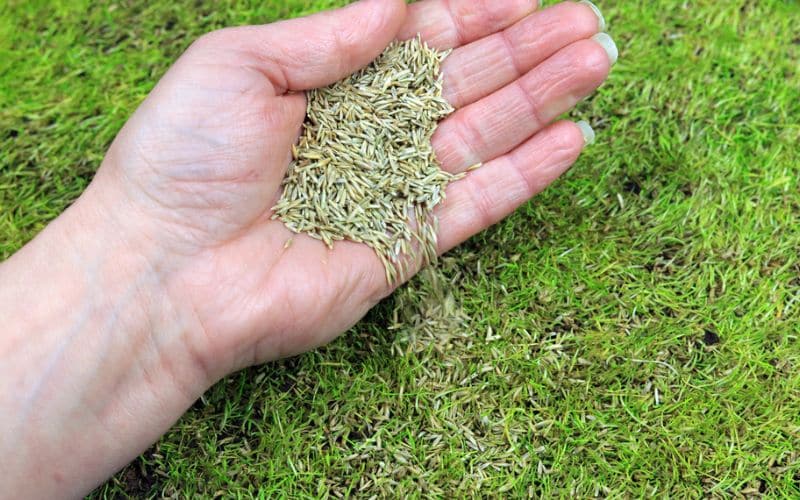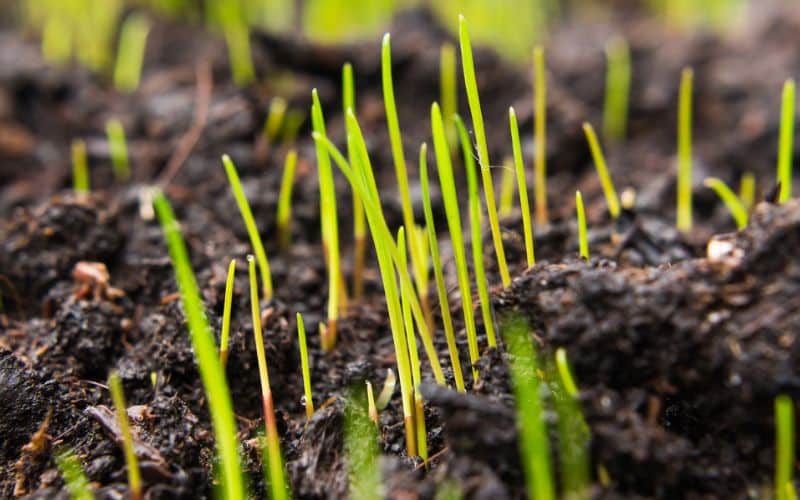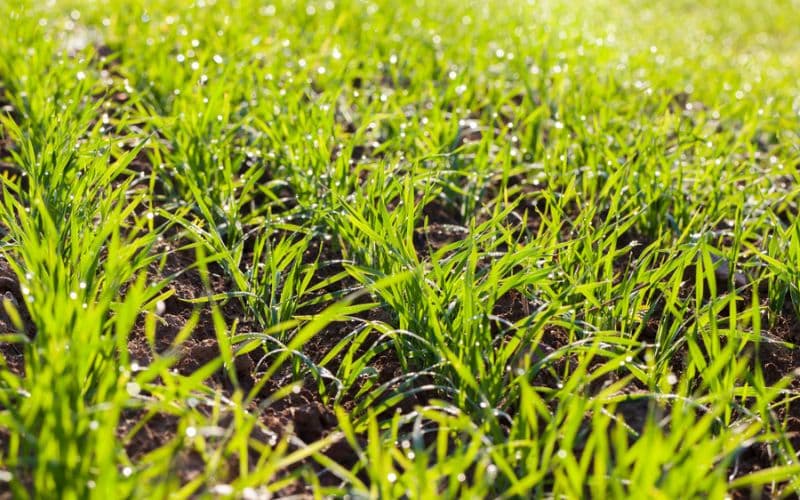
When you plant grass seed, you’re not just sowing seeds; you’re planting the foundation for a lush, green lawn. But how long does it take for grass seed to grow? The answer depends on several factors, including the type of grass seed you plant, the time of year, and the conditions in which the seed is sown.
Understanding the Basics: What is Grass Seed?
Grass seed is the reproductive unit of grass species. Each seed contains a tiny, immature plant called an embryo, which will germinate and grow into a new grass plant under the right conditions. The type of grass seed you choose to plant can significantly impact how long it takes for your new grass to grow.
How Does Grass Seed Germinate and Grow?
Grass seed germination is the process by which the seed sprouts and begins to grow. This process is triggered by certain conditions, including the right soil temperatures and adequate water. Once the seed germinates, it begins to grow, developing roots that anchor it in the soil and blades that reach towards the sun.
What Factors Affect Grass Seed Germination Time?
Several factors can affect how long it takes for grass seed to germinate and grow. These include the type of grass seed, the time of year, and the conditions in which the seed is planted.
The type of grass seed you plant can have a significant impact on germination time. For example, cool-season grasses like Kentucky bluegrass and tall fescue typically germinate faster than warm-season grasses like Bermuda grass and Zoysia grass.
The time of year can also affect how long it takes for grass seed to grow. Grass seed germinates best when soil temperatures are optimal for the specific grass type. Cool-season grasses grow best when soil temperatures are between 50 and 65 degrees Fahrenheit, while warm-season grasses prefer soil temperatures between 60 and 75 degrees Fahrenheit.
The conditions in which you plant your grass seed can also impact how long it takes for the new grass to grow. For example, grass seed sown in a well-prepared seedbed with good seed to soil contact will generally germinate and grow faster than seed scattered on top of hard, compacted soil.

How Long Does it Take for Grass Seed to Germinate?
The germination time for grass seed varies depending on the type of grass. Cool-season grasses can start to germinate in as little as a few days under optimal conditions, while warm-season grasses may take a week or more to sprout.
What are the Differences Between Cool-Season and Warm-Season Grass Seed?
Cool-season and warm-season grasses have different growth habits and preferences for air and soil temperatures, which can affect how long it takes for the grass seed to grow.
Cool-season grasses, such as Kentucky bluegrass and tall fescue, grow best in the cooler temperatures of late spring and early fall. These grasses can germinate quickly, often in as little as a few days, and can establish a new lawn in a few weeks under ideal conditions.
Warm-season grasses, such as Bermuda grass and Zoysia grass, prefer the warmer temperatures of late spring and early summer. These grasses typically take longer to germinate and establish than cool-season grasses, but once established, they can tolerate heat and drought better than cool-season grasses.
How Does the Type of Grass Seed Affect How Long it Takes to Grow?
The type of grass seed you choose can significantly impact how long it takes for your new grass to grow. Different seed varieties have different germination rates, and some types of grass grow faster than others.
For example, ryegrass is a fast-growing grass that can germinate in as little as 5-7 days and establish a new lawn in a few weeks. In contrast, Bermuda grass, a warm-season grass, can take 7-14 days to germinate and up to a year to fully establish a dense lawn.
What is the Best Time to Plant Grass Seed?
The best time to plant grass seed depends on the type of grass you’re planting. Cool-season grasses are best planted in early spring or early fall, when temperatures are moderate. Warm-season grasses are best planted in late spring or early summer, when temperatures are rising.

How Does Soil Condition Affect Grass Growth?
Soil conditions can significantly impact how long it takes for grass seed to grow. Grass grows best in well-drained soil rich in organic matter. If the soil is compacted or lacks nutrients, it can slow down germination and growth.
How Often Should You Water New Grass Seed for Optimal Growth?
Watering is crucial for grass seed germination and growth. Newly planted grass seed should be watered daily to keep the soil moist but not flooded. Once the grass sprouts, it’s important to continue watering regularly to encourage deep root growth.
What Can You Do to Speed Up Grass Seed Germination and Growth?
There are several steps you can take to speed up grass seed germination and growth. These include preparing the soil properly before planting, choosing the right type of grass seed for your climate and soil conditions, and watering the seed regularly to keep the soil moist.
How to Maintain Your New Lawn After Grass Seed Germination?
Once your new grass has germinated and started to grow, it’s important to continue caring for it to ensure it develops into a healthy, lush lawn. This includes regular watering, mowing at the right height, and applying fertilizer as needed.

In conclusion, here are the key points to remember when planting grass seed:
- The type of grass seed you choose can significantly impact how long it takes for your new grass to grow. Different grass species have different germination rates and growth speeds.
- The time of year can affect how long it takes for grass seed to grow. Cool-season grasses grow best when soil temperatures are between 50 and 65 degrees Fahrenheit, while warm-season grasses prefer soil temperatures between 60 and 75 degrees Fahrenheit.
- Soil conditions can significantly impact grass growth. Grass grows best in well-drained soil rich in organic matter. Compacted or nutrient-poor soil can slow down germination and growth.
- Watering is crucial for grass seed germination and growth. Newly planted grass seed should be watered daily to keep the soil moist but not flooded. Once the grass sprouts, continue watering regularly to encourage deep root growth.
- Proper lawn maintenance after grass seed germination is essential for developing a healthy, lush lawn. This includes regular watering, mowing at the right height, and applying fertilizer as needed.
- The best time to plant grass seed depends on the type of grass you’re planting. Cool-season grasses are best planted in early spring or early fall, while warm-season grasses are best planted in late spring or early summer.
- There are steps you can take to speed up grass seed germination and growth, such as preparing the soil properly before planting, choosing the right type of grass seed for your climate and soil conditions, and watering the seed regularly to keep the soil moist.
Colin Macmillan is a seasoned entrepreneur and the CEO of Riverwood Landscape, a leading landscaping company based in Canada. He has been at the helm of the company since leaving high school, demonstrating his strong leadership skills and business acumen.
Colin’s expertise lies in various aspects of landscaping, including lawn care, interlocking, sod installation, and commercial maintenance. His hands-on approach and dedication to the craft have been instrumental in building Riverwood Landscape into a reputable brand.
One of his most notable achievements is the creation of a successful landscape franchise that services multiple locations. This accomplishment underscores his strategic thinking and ability to scale operations effectively.
Colin has also had the privilege of working with Guelph Hospital for landscaping and maintenance, a testament to the trust and reliability that his company has earned over the years.
His professional mission is to offer the best services and experiences for customers, a goal that he tirelessly pursues. Colin’s commitment to excellence and customer satisfaction continues to drive the growth and success of Riverwood Landscape.








